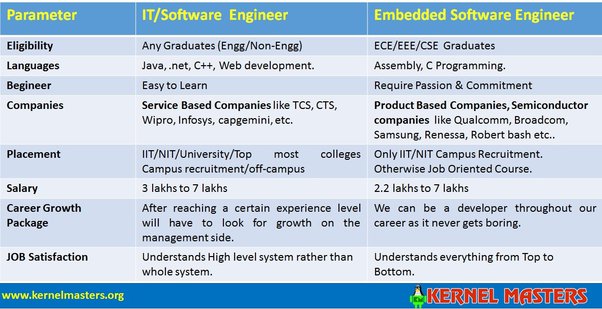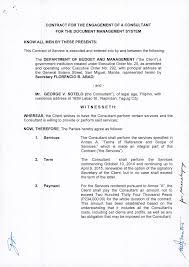
IBM is one of the most prominent names in technology, and it has a rich history. The company was established in 1911. A series of films featuring 100 people highlighting the company's contributions to society marked its centenary. Joe Pytka directed "100x100", while Errol Morst, a documentary filmmaker who won an Academy Award, shot "They Were There". It also featured music by Philip Glass.
Hollerith punchcard - ibm
The Hollerith punch card for IBM was inspired by a system that was used in textile mills as well as other industrial processes back in 1725. Joseph Marie Jacquard was inspired to use this method to create silk portraits. Semen Korsakov used punch card to store information in 1832. IBM's Hollerith punchcard would be used to record census data. This would eventually lead to the founding of IBM.
The strategic alliance between IBM and Nazi Germany began in early 1933, and the company's subsidiaries contributed to the development of various Nazi-era enabling technologies. In order to eliminate Jews, the German government needed a quick and accurate way to identify them. IBM's Hollerith punch cards machines were an important tool in this process.
The magnetic stripe at ibm
IBM's history with magnetic stripes begins with an engineer trying to create a way for magnetic media to be attached to plastic cards. Although he had heard of magnetic tape, he thought it might be possible to combine them. However, his wife suggested a better solution. She suggested melting the magnetic stripe on a plastic card. IBM was the first company to use this technology for commercial purposes.

The company was seeking to create a system for recording financial information and personal identification. They needed to decode personal data so that the information could be easily accessed. A team of researchers was assembled to create a system that could do exactly this. After the team had completed their work, IBM decided to adopt magnetic stripe technology and started rolling out employee ID cards and bank cards.
IBM's first computer
Arthur Rackham, a pioneer in the introduction IBM computers, was born April 5, 1911. He was an entrepreneur as well as a mathematician. He studied at Drake University. Iowa State College. Columbia University. Later, he was named the head of IBM’s research and development department.
The United States Air Force asked IBM during the war to create an electro-mechanical Bombsight. However, the company was still skeptical about the future electronic computing. Tom Watson, Jr., felt at the time that IBM was not moving quickly enough towards electronic computing. He had an idea to create an electronic computer capable of performing scientific computations.
IBM's research
The IBM Archives document the company's achievements and progress over the years. Currently, IBM employs 195,000 technical professionals and has 350 Distinguished Engineers and 60 IBM Fellows. NetObjects Technologies, CommQuest Technologies were acquired by the company. Many of its products can now be used in the business world.
Sales rose steadily for the company. Wall Street was awestruck by the company's growth. The company's profits were up by almost $16 billion by 1984. Wall Street was fondly familiar with IBM Corporation. IBM was seen as the only company that could rival Japanese companies. It even became the subject of a best-selling book.

IBM's Stock Purchase Plan
The IBM Stock Purchase Plan, a retirement plan that allows eligible IBM employees the opportunity to purchase common stock of the company, is called the IBM Stock Purchase Plan. Originally, IBM employees were paid 85 per cent of the average market price during the offering periods. IBM changed the terms of the plan in 2005 so that participants are now able to purchase fractional or full shares of IBM stock at a discount of five percent from the average market price the day they buy them.
Shares purchased under the Plan are eligible for resale at any time. Sometimes, the process can be stopped entirely. The shares can be purchased on the open-market or treasury.
FAQ
What qualifications do you require to become a Consultant?
It doesn't suffice to hold an MBA. You also need to be able and willing to work as a business advisor. At least two years experience in training and/or consulting for major companies is required.
It is essential that you have experience working closely with senior management on strategic development projects. This will require you to be comfortable sharing your ideas with clients and getting their buy-in.
You will also need to pass a professional qualification test such as the Chartered Management Institute Certified Management Consultant certification (CMC).
How did modern consulting come to be?
The first consultants were accountants who helped companies manage their finances. They were able to manage financial information and became "accounting experts". The role soon expanded to include other areas, including human resources management.
The French word for "to advice" was the inspiration behind the term "consultant." This was used by businessmen as a way to describe someone who could provide guidance on running an organization. Today, business owners still use the term consultant to refer to any type of professional advisor.
What can I anticipate from my consultant
You should hear back from your chosen consultant within a few days. They will usually ask for information about your company, including its mission, goals, products, services, budget, etc. After receiving this information, they will prepare a proposal outlining their scope of work, estimated timeline, fees, deliverables and milestones.
If all goes well, the parties will then negotiate a written agreement. The type relationship between the two sides (e.g. employee-employer or independent contractor-employer) will dictate the terms of the contract.
If all goes well, the consultant will start working immediately. He/she will have immediate access to your internal documents, resources, and you'll be able to access his/her skillset and knowledge.
But don't assume that anyone who is a consultant has all the answers. It takes practice and hard work to become an expert in the field you are consulting. Do not expect your consultant to be an expert in every aspect of your business.
Who hires consultants
Many organizations hire consultants to assist with projects. These can include small businesses and large corporations, government agencies as well non-profits and educational institutions.
Some consultants work directly for these organisations, while others freelance. The process of hiring depends on the size and complexity the project.
There will be many rounds of interviews for consultants when you are looking to hire. Only then can you select the right person to fill the position.
What types of contracts exist for consultants?
When they are hired, most consultants sign standard employment contracts. These agreements detail the length of the consultant's contract with the client, the amount he/she is paid, and other important details.
Contracts will also outline the areas of expertise and compensation for the consultant. The agreement might state that the consultant will conduct training sessions, workshops or webinars.
Sometimes, the consultant agrees to do certain tasks within a given time frame.
In addition to standard employment agreements, many consultants also sign independent contractor agreements. These agreements allow the consultant freedom to work without being paid.
What industries use consultants
There are many different types of consultants. Some are specialists in one type or another of business.
Some consultants work only for private companies, while others represent large corporations.
Some consultants are available to help businesses around the world.
How do I get clients to my consulting business?
Finding a passion area is the first step. This could be social media or public relations. However, it must be something that you are passionate about. You might have to start small, such as by finding niche markets like web design. Once you have discovered the niche, understand what it does. What problems does the solution solve? What problems can it solve? How can you help them?
You can also approach businesses directly.
If all else fails, why not offer your services at free events like networking evenings and conferences? You'll meet many potential customers without spending money on advertising, and you'll be able to show off your skills.
Statistics
- On average, your program increases the sales team's performance by 33%. (consultingsuccess.com)
- Over 50% of consultants get their first consulting client through a referral from their network. (consultingsuccess.com)
- My 10 years of experience and 6-step program have helped over 20 clients boost their sales by an average of 33% in 6 months. (consultingsuccess.com)
- According to statistics from the ONS, the UK has around 300,000 consultants, of which around 63,000 professionals work as management consultants. (consultancy.uk)
- "From there, I told them my rates were going up 25%, this is the new hourly rate, and every single one of them said 'done, fine.' (nerdwallet.com)
External Links
How To
How can I start a consultancy business with no money?
A simple and effective way to get started with your own consultancy business - without any capital investment!
In this tutorial, you'll learn how to make money online while working from home, improve your skills, earn some extra cash, and become successful.
I will share some secrets that show you how to generate traffic on demand, especially when people are searching for something specific.
This method is known as "Targeted Traffic". This method was specifically designed to make it possible to accomplish such things...
-
Find the niche in which you would like to work.
-
You can find out what keywords people use to search Google for solutions.
-
Write content that uses these keywords.
-
Post your articles on article directories.
-
To promote your articles, use social media.
-
You can build relationships with people who are experts in the field.
-
Get featured on these sites and blogs.
-
Grow your email list by sending out emails.
-
Start making money.